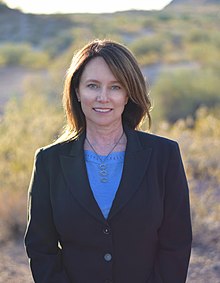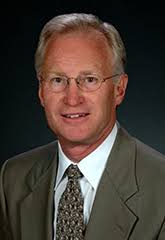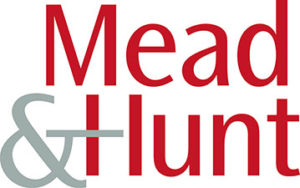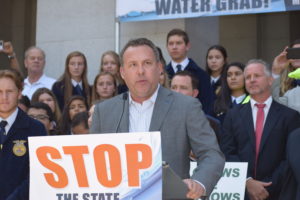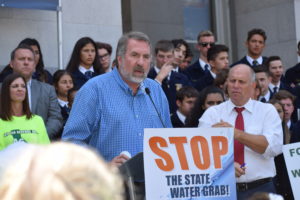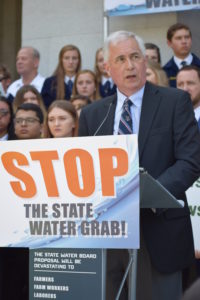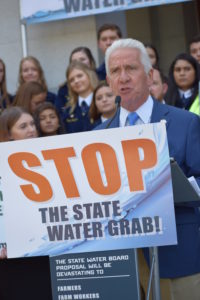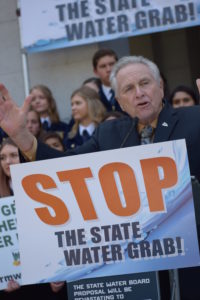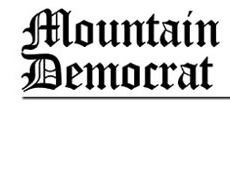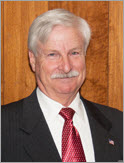 By: Barbara Balen, President, Mountain Counties Water Resources Association (MCWRA) & President, Tuolumne Utilities District (TUD)
By: Barbara Balen, President, Mountain Counties Water Resources Association (MCWRA) & President, Tuolumne Utilities District (TUD)
There’s an old saying – if you’re not at the table, you’re on the menu. When it comes to water conservation, Tuolumne County’s water has been on the State’s menu all along. No matter how much we conserve, dry up our yards, speed up the flow through our county and de-water our fire-prone landscapes, the downstream appetite for water continues to grow. It is now glaringly apparent that we were never intended to benefit from our efforts. In other words, we were on the menu all along.
One size does not fit all. The state’s Making Conservation a Way of Life was written by and for Californian’s urban and coastal populations. For rural communities it translates into Making Rationing a Way of Life. For urbanites, it’s all about limiting the use of treated drinking water for outdoor uses and rightfully so as it is an expensive commodity. Hence, wasteful practices include hosing off sidewalks, driveways, and other hardscapes, automobiles with hoses not equipped with a shut‐ off nozzle, and watering lawns in a manner that causes runoff*. In rural communities, run-off is not a waste but a benefit absorbing into gardens, orchards and recharging our wells and springs. With the exception of water transpiring through trees and evaporation, all mountain county water goes towards non-consumptive, outdoor benefit before flowing downstream for others to enjoy. Costal and urban centers typically have no downstream beneficiaries; the next stop is the ocean.
The problem for those living in the Wildland Urban Interface (WUI) is the increasing fire danger when we de-water the landscape in the name of conservation. The water flowing through the Sierra has not yet been commodized. Its efficiency is that it is a force of nature that works on our behalf with many economic, social and environmental benefits. Abruptly drying up the environment is not a sustainable solution and goes way beyond fixing toilet leaks and hosing off sidewalks to increasing our risk of catastrophic fire and economic ruin. Specifically, it can have unintended consequences to trees, soil, and hydrated green vegetation. Conservation in rural terms includes slowing it down and sinking it for local benefit. We either use it or lose it.
Strengthen local drought resilience. We have three choices: green, brown or black. Local control means strengthening drought resilience by choosing green and dedicating water to this end as a public benefit. It is time the mountain counties define our rural uses of water and why watering in the WUI matters as part of strengthening local drought resilience. It’s time that the state regulators recognize that rural uses have local and statewide benefits – it is not just about protecting aquatic species in the Delta. Our rural economy and ecology depend on water flowing in the environment, reservoirs, stock ponds and creeks. This is where 65% of the state’s water comes from. It’s time our region takes local control of our watershed and manage it to our benefit before we send it out of the county. We have a right to enjoy our water for all the same reasons others want us to forfeit it.
* Source: Making Conservation a Way of Life

